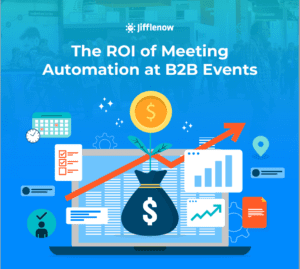How hard can it be? It’s just calendar management, right?
Event managers and planners are responsible for a large number of tasks that fall under their ambit. All those tasks are very crucial to the success of the event. But in today’s milieu, the biggest indicator of an event’s success is the event ROI. Since event ROI is measured based on the revenue generated from the event, the sales meetings that increase a company’s revenue take the center stand.
Even with such high stakes riding on these meetings, they do not get the attention they deserve. They languish at the bottom of the priority pile, having to contend with spreadsheets and outlook to manage hundreds of meetings that the event planner or meeting manager has to orchestrate. The problem with those tools is that they do not scale. The old thought process of “Hey, it worked when we managed those 25 meetings last year. How different can 150 meetings be?” needs to change.
This is what happens before the manager figures out that their current traditional methods are not going to cut it:
Lost sales deals because of missed meetings

Managing a high volume of meetings manually is not ideal, but that’s how most companies at events do it – because they’re not aware of the alternatives. While managing meetings in real time, there will be issues like double-bookings and time-zone errors. All these translate to missed meetings, which are blockers for the progress of sales deals. No company executive would be okay with the concept of losing out on revenue because of manual errors, but that’s exactly what happens in many cases.
Underutilization of executive time
High-level executives have deep insights on how to move deals forward by intuitively understanding the customer’s requirements, and matching them with that the company has to offer. But if these executives don’t even make it to the meeting in the first place, then all these advantages that the company has won’t matter.
This usually happens because there’s limited transparency into their calendars, so meeting managers do not know when executives are available. If a previously booked meeting gets canceled, a lot of valuable time goes unused.
Cost overruns and reduced ROI
This is the biggest indicator of the far-reaching consequences of bad calendar management. Missed meetings represent lost revenue and unused meeting rooms represent an inefficient use of resources, which further leads to declining ROI. If there’s only one thing that you take away from this blog, let it be this – bad calendar management at events and trade shows costs the company money.
So what’s the way out?
Having a great product, and a brilliant sales team can mean naught if the company’s revenue is being affected by something as trivial (but still consequential) as missed meetings.
The only way to overcome this is to use a tool that is custom built to solve this problem. Not excel spreadsheets, not outlook, not 400 post-it notes stuck on the wall.
A platform like Jifflenow eliminates a lot of manual work and all the errors along with it. It reduces the number of missed meetings and makes calendar management a breeze. It also helps with attributing ROI to those meetings, which means that you can command larger budgets for subsequent events.



